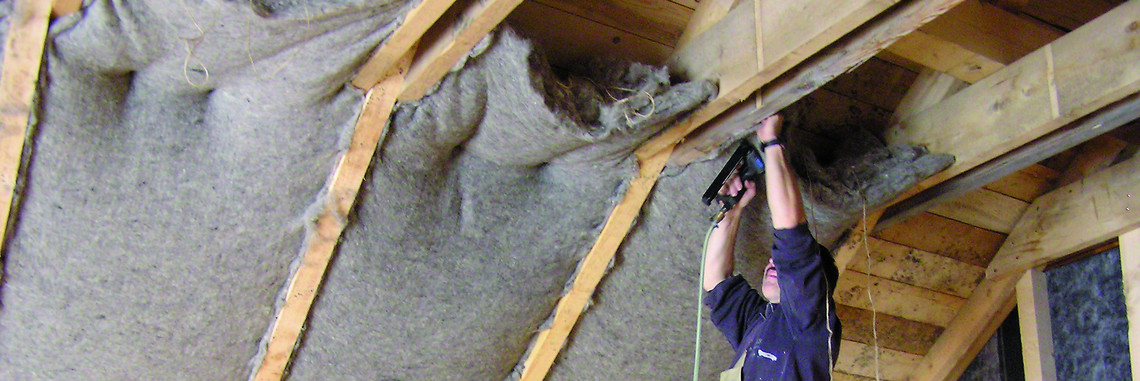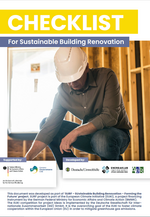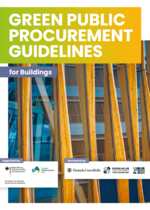SUstainable Building Renovation – Forming the Future (SURF)
European municipalities as drivers of the Renovation Wave
Deutsche Umwelthilfe (DUH), Ae3R and Energiaklub implement the SURF project, funded by the European Climate Initiative (EUKI), to stimulate deep and sustainable building renovations by empowering municipal actors to foster and implement sustainable renovation projects. We are convinced that municipal decision-makers and professionals in cooperation with local stakeholders can trigger a paradigm shift in sustainable energy renovation from the ground up.
Background
The building sector is a key leverage point to reduce greenhouse gas emissions. 36% of the CO2 emissions in the European Union originate from the building sector. Thus, the European Union aims at reaching a climate- neutral building stock in 2050, which is only possible through intensified renovations.
Although public buildings should act as role models for private sector renovations, renovation rates in Germany, Hungary, and Romania are significantly lagging behind the average annual renovation rate required by the European Commission.
Main elements of SURF
- Transnational workshops: SURF brings together 2-4 forerunner municipalities in transnational workshops with municipalities from Germany, Hungary and Romania to learn from their experiences with best practices and successful concepts.
- Online training: SURF addresses capacity gaps by providing a circular building training series as well as useful resources and guidelines.
- SURF network: To amplify the impacts created, the project aims to establish the new transnational SURF network, to support the exchange of practical solution. EU-wide informal online “renovation lunches” and a conference will fill the SURF network with life to help connecting municipalities and build transnational partnerships.
"Circular Buildings" Training
About the „Circular Buildings” online training series
As part of the SURF project, „Circular buildings" online training series are planned. The aim of the training is to address the existing capacity gap by providing up-to-date expertise and thereby strengthen the skills of municipal stakeholders from EU Member States and promote sustainable renovations at the local level. The series of the „Circular Building" trainings includes the following three modules, each dedicated to different topic of sustainable building renovation:
- Module 1: Life Cycle Assessment (LCA) and climate-friendly building materials (Ausgust 31, 2023)
- Module 2: Financing options for sustainable building renovation projects (March 21, 2024)
- Module 3: Green Public Procurement. How to integrate „green" criteria in public procurement for buildings (October 2, 2024)
Module 1: Life Cycle Assessment (LCA) & climate-friendly building materials
Date: August 31, 2023
The EU Renovation Wave and the Circular Economy Action Plan set the course for delivering more sustainable buildings through intensified renovation activities. However, life-cycle assessment (LCA) or circular solutions find little or no practical application in the building sector in EU countries. In addition to the need for more financial support for municipal renovations, there are still challenges for municipal actors in terms of capacity and know-how on sustainable refurbishments.
To address these knowledge gaps, on August 31, 2023, we kick-started our "Circular Buildings" online training series with Module 1, which focused on LCA and climate-friendly building materials. Eva-Maria Friedel, senior researcher at Bauhaus Earth (tbc), introduced the training participants to the life cycle assessment, a tool that allows understanding the energy use and other environmental impacts associated with all stages of a building’s life cycle: site selection, design, construction, operation and maintenance, refurbishment and renovation or demolition. In addition, we heard some inspiring good practice examples of climate-friendly renovation methods (with clay, straw, hemp, paludiculture plants or circular construction/renovation) from Dr. Ipek Ölcüm, CEO Industrieverband Lehmbaustoffe e. V., Michael Burchert, CEO Bauwende e.V., and Dominik Campanella, CEO Concular GmbH.
- Michael Burchert: Building and renovating with the most climate-positive techniques possible
- Dominik Campanella: How digital tools will enable circular construction
- Dr. Ipek Ölcüm: Sustainable Building Renovation - Forming the Future „with clay earth building materials"
- DUH: SUstainable Building Renovation - Forming the Future (SURF) Online training „Circular Buildings" Module 1: Life Cycle Assessment (LCA) and climate-friendly building materials
- Eva-Maria Friedel: Life Cycle Analysis of conservation vs. demolition and new construction. Using the example of a facade refurbishment
- Michael Burchert: Building and renovating with the most climate-positive techniques possible
- Dominik Campanella: How digital tools will enable circular construction
- Dr. Ipek Ölcüm: Sustainable Building Renovation - Forming the Future „with clay earth building materials"
- DUH: SUstainable Building Renovation - Forming the Future (SURF) Online training „Circular Buildings" Module 1: Life Cycle Assessment (LCA) and climate-friendly building materials
- Eva-Maria Friedel: Life Cycle Analysis of conservation vs. demolition and new construction. Using the example of a facade refurbishment
- Michael Burchert: Building and renovating with the most climate-positive techniques possible
- Dominik Campanella: How digital tools will enable circular construction
- Dr. Ipek Ölcüm: Sustainable Building Renovation - Forming the Future „with clay earth building materials"
- DUH: SUstainable Building Renovation - Forming the Future (SURF) Online training „Circular Buildings" Module 1: Life Cycle Assessment (LCA) and climate-friendly building materials
- Eva-Maria Friedel: Life Cycle Analysis of conservation vs. demolition and new construction. Using the example of a facade refurbishment
- Michael Burchert: Building and renovating with the most climate-positive techniques possible
- Dominik Campanella: How digital tools will enable circular construction
- Dr. Ipek Ölcüm: Sustainable Building Renovation - Forming the Future "with clay earth building materials"
- DUH: SUstainable Building Renovation - Forming the Future (SURF) Online training "Circular Buildings" Module 1: Life Cycle Assessment (LCA) and climate-friendly building materials
- Eva-Maria Friedel: Life Cycle Analysis of conservation vs. demolition and new construction. Using the example of a facade refurbishment
Module 2: Financing options for sustainable building renovation projects
The European Commission encourages Member States to use EU funding to implement national, regional and local support schemes to promote sustainable building renovation. However, the investments necessary to increase energy efficiency in buildings are already reaching a level that cannot be covered with public money alone. The EU invests €85-90 billion annually in the energy efficiency of buildings through public programs, while the renovation of existing buildings alone will require additional investments of €275 billion per year to reach the 2030 climate targets (COM). Therefore, the mobilisation of private capital for climate-friendly construction and renovation is crucial. As an important link between investors, industry and homeowners, local authorities need to familiarise themselves with the financial instruments and determine the most suitable ones for successfully implementing sustainable renovations at the local level.
In this context, Module 2 of the online training "Circular Buildings" was dedicated to financing options for sustainable building renovation projects. In Module 2, Mathieu Daloze from the European Commission (DG Energy) gave a detailed overview of the EU policy framework and EU financial programs for building renovations with relevance to local governments. In addition, Pablo Baigorria Kobylinski from Creara, a Madrid-based consultancy, introduced the training participants to innovative financing tools such as on-bill and on-tax schemes, energy performance contracting (EPC) as well as green mortgages, loans and bonds, while also discussing their advantages and disadvantages. Both presentations were followed by two good practice examples. Samuel Bretillot from Île-de-France Region introduced presented the Region's framework for green and sustainability bonds for green buildings, while Ly Loss from the Estonian Business and Innovation Agency KredEx shared Estonian experiences in financing sustainable building renovation projects, including with the help of the KredEx Revolving Fund.
Recording and presentations from the event:
Since public authorities are major buyers of goods, services and works, they can use their purchasing power to select climate-friendly goods, services and works and thus make a valuable contribution to achieving national as international sustainability and environmental policy goals.(COM) However, according to a study published in 2023 by the Stockholm Environment Institute, 55% of procurement procedures in the EU still use the lowest price as the sole award criterion. The study shows that local authorities need greater awareness and clear guidance on how GPP and „green” criteria can be used for impactful societal outcomes. Module 3 of our „Circular Buildings” training series therefore addresses these existing knowledge gaps among local stakeholders in European countries in the field of green public procurement for the design, construction, renovation, demolition and management of buildings.
In Module 3, Ms. Evelin Piirsalu, Senior Expert at the Stockholm Environment Institute, provided an overview of the results of the 2023 GPP study mentioned above. The study examined the GPP landscape in the EU and identified solutions and best practices, as well as policy recommendations to strengthen GPP policies to reduce GHG emissions, based on case studies from eight EU Member States. In addition, scientific project officer Ms. Ángela Ranea Palma and project officer Ms. María González Torres from the European Commission’s Joint Research Centre (JRC) presented the Commission’s green criteria for the design, construction, renovation, demolition and management of buildings, which are currently under revision. Finally, we heard good practice examples of the implementation of green public procurement in the building sector from two European cities – Helsinki (Finland), presented by Ms. Sara Tapiala, Team Leader for Environment and Energy at the City of Helsinki, and Pesaro (Italy), presented by Ms. Margherita Finamore, Project Manager for Sustainable Built Environment at the Council of Pesaro.
Recording and presentations from the event:
Online Renovation Lunches
The EU Renovation Lunches are a new online format, which brings together municipalities, local and regional authorities and stakeholders from all over the EU. It provides an open and informal space to exchange about best practices, learnings and difficulties in implementing renovation but also to find partners for cooperation and support.
June, 28, 2023 | see presentation
The EU aims at an annual 3% renovation rate of buildings. However, we are far away from a Renovation Wave as the current renovation rate is roughly at 1%. Building renovations decrease energy consumption while reducing energy poverty and at the same time mitigating CO2-emissions to reach the EU climate targets. Municipalities and regions play a major role in facilitating building renovations. Unfortunately, financial questions often pose obstacles to renovation activities. Effective and easy financing models are needed.
The Rhodoshop project from Bulgaria represents such an example. In the first Online Renovation Lunch, Zlatka Nikolova from the Association of Rhodope Municipalities and Ivanka Pandelieva-Dimova from the Sofia Energy Center exchanged insights, successes, challenges and insights about the Rhodoshop project to introduce a one-stop shop (OSS) for energy renovation of buildings. OSS offers integrated renovation solutions with the main aim of simplifying the building renovation process for the property owners. It is intended to accelerate building renovations by informing, motivating and supporting building owners throughout the energy renovation process. In addition, OSS can facilitate access to financing, occasionally offer better interest rates and also improve the average depth of renovation in terms of energy performance.
February 20, 2024 | see presentation
In the second edition of the Online Renovation Lunch, Alessio Colombo, CEO and Cofounder of CLEVER Cities project shared insights, successes, challenges and learnings of his project and its sustainable material use. The CLEVER Cities project has retrofitted four towers of social housing owned by the Lombardy region, public residential buildings. Their entire facades were renovated using rice husks. Allessio Colombo gave the participants insights into how the use of rice husk was a solution regarding sustainability issues as well as into the challenge regarding financing.
June 13, 2024 | see presentations
The third and final informal online Renovation Lunch was dedicated to the Energiesprong concept. Energiesprong is a concept for the energy renovation of buildings that promises fast implementation, cost reduction and sustainability. After a renovation with Energiesprong, a building is a net zero energy building, i.e. it generates all the energy needed for its heating, hot water and electrical appliances itself. This can be achieved through the use of innovative technologies such as prefabricated façades, insulated rooftops with solar panels and smart heating and/or ventilation and cooling systems. A complete home renovation can be completed in less than 10 days, and in some projects, in just one day. In Europe, the Energiesprong concept is being implemented in the Netherlands, Germany, France, Italy and the UK.
At the third Renovation Lunch, Sanne de Wit, Head of Ideas at the Global Energiesprong Alliance, and Timo Sengewald, Senior Expert for Climate-Neutral Buildings at the German Energy Agency (dena), exchanged experiences with the implementation of the Energiesprong concept in the Netherlands and Germany. Both countries follow different approaches in applying this concept: while in the Netherlands it is applied to the renovation of residential buildings, in Germany it is used to the renovation of non-residential buildings instead.
Transnational Workshops (only for project participants):
May, 10th, 2023 | Online |
During the online workshop, participating municipalities were introduced to the SURF project, the policies and goals for sustainable renovations at EU level, and the idea and importance of sustainable renovations. The municipality of Steyerberg (Germany) shared their best practice experience of sustainable renovation. In the second part of the workshop, the results of the participating municipalities’ discussion revealed that several participants still have little knowledge about sustainable and especially circular renovation of buildings. The discussion showed that sustainable renovations in Romania, Hungary and Germany face the following obstacles: (1) financial challenges, (2) lack of knowledge about sustainable materials, (3) lack of specific legislation on green public procurement and (4) acceptance of the costs of life cycle assessment. Most of these know-how-based barriers will be addressed through the capacity building activities of the SURF project.
Here you can read the presentation of the municipality of Steyerberg and the DUH presentation on the project.
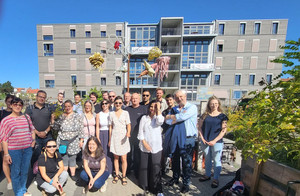
(Copyright: DUH)
During the workshop, the local staff from municipalities in Hungary, Rumania, and Germany visited best practice projects in Luckenwalde and Berlin (Germany). Luckenwalde managed to energetically refurbish residential buildings and seized the opportunity to connect the buildings to the local district heating at once due to successful cooperation between the urban planning office and other municipal administration and utilities.
- Participants had the opportunity to visit the implemented measures such as an old apartment block building that has been energetically renovated to a low energy building ensuring a low rent, an energetically renovated library that formerly was a station hall as well as several energetically renovated residential districts and a renovated school heated by a hybrid geothermal heat pump.
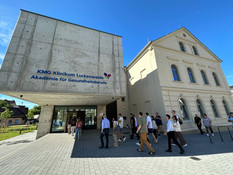
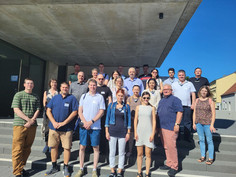
Left: photography of the group in front of the energetically renovated education institute that was extended by a new annex building (Copyright: DUH)/Right: the building as such (Copyright: DUH)
- On the third and last day, participants had the opportunity to visit the Circular House in Berlin, a former industrial building that has been reconverted and sustainably renovated into a living and office space. An expert from the Urban Mining Hub Berlin, Wilhelm Unnerstall, highlighted the sustainable renovation features, which led to an inspiring exchange amongst the participants.
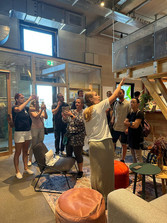
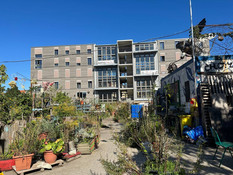
Left: tour in the circular house (Copyright: DUH)/Right: house "Alltag" (Copyright: DUH)
- “Alltag”, the building, offering flats and spaces for work and social occasions, is partially constructed with a timber structure. The tall windows in the staircase could be saved from a building that was demolished. The building envelope is conform to the standard of a passive house.
The immersion into the best practice examples in combination with the knowledge transfer that inspired the participants not only in a cognitive but also in a holistic way. The presentation about the energetic renovation of a whole district, for example, inspired them, but was not as highlighted by them as was the experience of actually being in a converted building, renovated with sustainable material made them combine the newly gained knowledge with a positive experience.
Workshops:
Additionally, participants exchanged their experiences in four workshops that were geared to each other. They analysed relevant municipal processes, challenges and stakeholders in the context of sustainable building renovation (SBR) in order to identify leverage points for improvements in and acceleration of SBR processes.
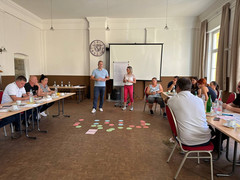
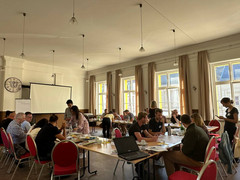
(Copyright: DUH)
The participating municipal staff was very happy with the exchange. They highlighted the inspiration they got by the selected best practices and that they would use in their hometowns.
November 28th | Online |
At the third and final international peer-to-peer workshop, the German municipality of Krefeld shared its approach to green public procurement for construction and renovation projects.
In 2021, Krefeld set a target to become climate-neutral by 2035. That same year, the Central Building Management introduced the "Planning Instructions for Municipal Properties," with an appendix on "Sustainable Construction." These instructions outline sustainability goals across environmental, economic, and health aspects, and provide specific measures for renovating or constructing municipal buildings. All renovation and construction projects must adhere to these instructions, which means procurement documents must also integrate sustainability criteria to ensure compliance.
Rachid Jaghou, Head of Krefeld's Central Building Management, highlighted two exemplary projects: the Weidenröschenweg daycare center, completed in August 2023, and the Ritterstraße daycare center, currently under construction. In both cases, sustainable construction standards were fully integrated into the tendering process.
Here you can find the presentation from the city of Krefeld.
Here you can access our P2P learning paper, “Municipalities Setting the Standard for Good Practices in Sustainable Building Renovation.” This paper features two examples of best practices shared by German municipalities with Romanian and Hungarian municipal decision-makers, professionals, and other key local stakeholders during the Peer-to-Peer workshops. The examples include Luckenwalde’s extensive experience in energy-efficient district renovation and Krefeld’s approach to integrating sustainability into both local renovation and new construction projects, guided by the city’s “Planning Instructions for Municipal Properties.” Additionally, the P2P learning paper highlights key insights from both municipalities and offers recommendations for sustainable renovation and building practices aimed at municipal stakeholders.
Contact info
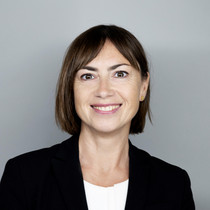
Jurga Tallat-Kelpšaitė
Advisor Energy & Climate Protection
E-Mail: Mail schreiben
EUKI SURF EU-wide policy conference - Fostering sustainable building renovation in Europe!
On November 19, 2024, the hybrid EU-wide policy conference „Fostering Sustainable Building Renovation in Europe!" took place at the Impact Hub Berlin, attracting a diverse group of international participants who joined both in person and virtually via Zoom. For more information, please check the conference website.
Supporting materials
To support municipalities and stakeholders in planning, procuring, and implementing sustainable building renovation projects, Deutsche Umwelthilfe, Energiaklub, and Ae3R have developed a set of practical resources as part of the SURF project:.
- Factsheets.They provide a quick overview of key topics including climate-friendly building materials, a life-cycle approach, financing options for sustainable building renovations, and green public procurement for buildings. Each factsheet contains a good practice example from a European municipality or region.
- Checklist for Sustainable Building Renovation.It takes you step by step through the building renovation process - from strategic planning to demolition – ensuring that sustainability is considered at every stage through simple, targeted questions.
- Green Public Procurement Guidelines for Buildings. These offer practical, easy-to-follow advice on integrating green criteria into public procurement procedures for building renovation and construction.
These resources are available in three languages—English, Hungarian, and Romanian—making them accessible to a wide range of stakeholders.

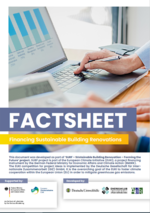

Climate-Friendly Building Materials
Financing Sustainable Building Renovations
Green Public Procurement
Watch our short video here to explore practical solutions for sustainable building renovation, featuring the Circular House in Berlin as a concrete good practice example of applying circular economy principles in renovation projects.
Participating municipalities
- Halle (Saale): Bauverein Halle & Leuna eG
- Crailsheim: Stadtwerke Crailsheim
- Steyerberg: Stadt Steyerberg


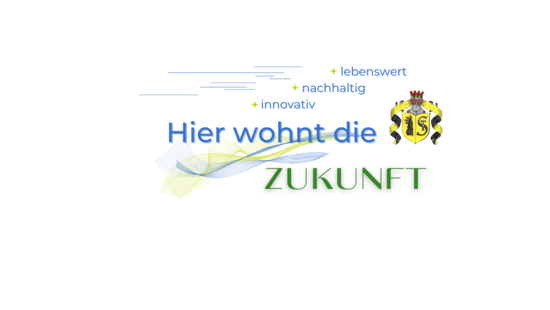

- Ajka
- Alsómocsolád
- Budaörs
- Pilisborosjen
- Szászvár
- Szeged
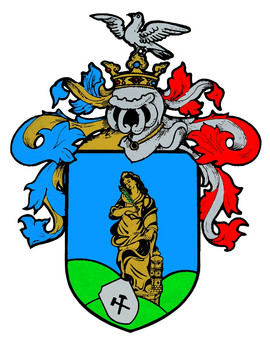

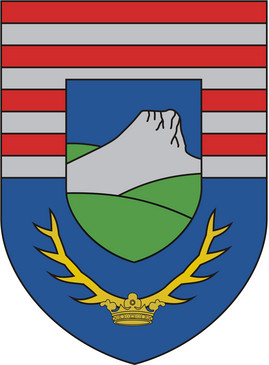
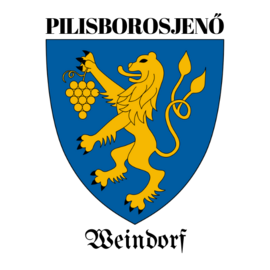
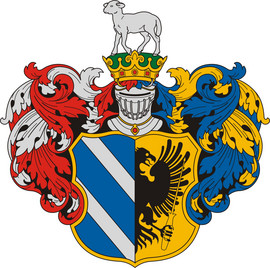
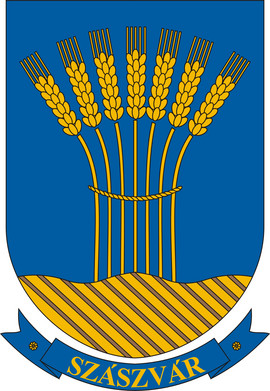
- Ploiesti
- Mizil
- Lipanesti
- Magurele
- Floresti
- Banesti
- Valenii de Munte
- Tinosu
- Targsoru Vechi
- Gura Vadului
Implementing partners
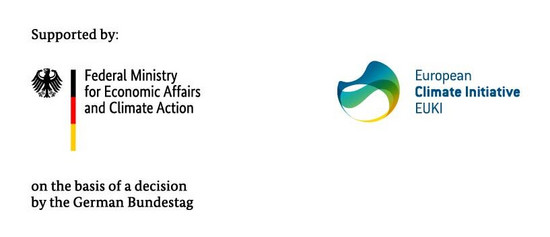
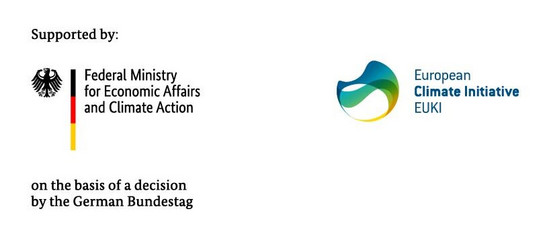






Funded by the European Climate Initiative

